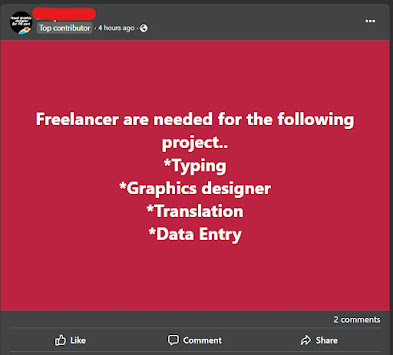The AI Paradox: Cheating Tool or Guilty Pleasure?
There's no denying it. Artificial Intelligence, or AI, has become a vital part of modern technology. But, it's not without its controversies. In fact, it's kind of like an enigma. On one side, people see it as a shortcut to success, a type of cheating. On the other side, it's our little secret helper, a guilty pleasure. Let's dive in and find out why.
When AI Feels Like Cheating
Let's start with education. There are AI tools that can solve math problems or even write essays. It makes schoolwork a breeze for some students, but is it fair? Teachers are left scratching their heads, wondering if their students actually did the work.
Then there's the workplace. AI can whip up reports, analyze heaps of data, or even chat with customers. It’s handy, sure. But some folks feel like it's taking over human jobs and creativity. Businesses that use these tools without telling anyone about it often get labeled as 'cheaters'.
In the gaming world, it's a similar story. AI can give players an edge over their competitors. But where's the fun in winning when it's not your skill or strategy that's behind the victory?
The Alluring Side of AI
Despite all this, we can't deny that AI is pretty cool. It's seeping into our lives in more ways than one, from autocorrect on our phones to AI personal assistants like Siri and Alexa. It's fast, it's efficient, and it's incredibly tempting to use.
But here's the catch. We love using it, but we don’t always love admitting it. Why? Well, if we credit AI for our achievements, would they still feel like our achievements?
The AI Dilemma: To Use or Not to Use
Why do we keep our use of AI on the down low? Well, there are a few reasons. For starters, there's the 'AI is evil' stigma. Some people believe AI is out to steal our jobs and take over the world. So, if you're using AI, people might view you as a cheat or a robot lover.
Then there's the competitive edge AI gives. It's a bit of a catch-22. AI can do some amazing things for businesses, from automating boring tasks to improving decision-making. But, if you're a business and you use AI, you might not want your competitors to know.
Finally, there's the issue of transparency. A lot of AI systems are like a 'black box', doing their magic behind the scenes. It's not always clear how they come up with their results, which can be unsettling. Plus, if we can’t understand what’s going on inside these AI systems, it's hard to keep them in check.
The Big Picture: Yesterday, Today, and Tomorrow
If we delve into the past, we find that new technologies often spark fear before they are accepted. Johannes Gutenberg, with his 15th-century invention of the printing press, faced apprehension. Critics feared it would spread heresy and misinformation, creating chaos. However, in the long run, this invention democratized knowledge, opening the floodgates of enlightenment for the masses.
In the 18th century, Benjamin Franklin's experiments with electricity, an invisible force, were seen as witchcraft and were met with skepticism. Fast forward to the present, and electricity is such an integral part of our lives, we can hardly imagine a world without it.
The same trepidation greeted the telephone, the airplane, and the computer when they first arrived. These innovations, which initially sparked fear and doubt, are now considered transformative, having reshaped the world we live in today.
Today, we stand on the threshold of the AI era, confronted with the same patterns of skepticism and fear. Much like its predecessors, AI is currently a novel concept that instills apprehension in some. Yet, its potential to become an indispensable facet of our lives, much like the revolutionary inventions of the past, is substantial.
But here's a revelation: the fear we harbor isn't so much about the technology itself. Our apprehension stems more from its potential misuse, anchored in our historical experience with the human capacity for destruction. It's a bitter reality we've confronted time and again. As we move forward into the era of AI, it's not the technology that we should fear, but the way we choose to use it. It's an important lesson from history that we would do well to keep in mind as we shape the future of AI.
Embracing AI: What’s Next?
We're slowly warming up to AI. As it becomes more common, we're starting to see it as less of a threat and more of a tool. But it's not enough to just accept AI. We need to use it responsibly.
That means being open about how we use AI. It means setting rules to make sure everyone has a fair shot, even when AI is in the mix. It also means teaching people about AI's potential, as well as its limitations.
Let's stop seeing AI as a replacement for human work and creativity. Instead, let's see it as a tool we can use to enhance our own capabilities. It's not here to make us obsolete. It's here to help us do better.
AI's Role in Our Lives
So, is AI a cheat or a secret helper? That's the AI paradox we're dealing with today. But maybe, it doesn't have to be one or the other. AI is simply a tool, and it's up to us to use it wisely.
Yes, it's transforming our lives. And yes, it can feel a little strange to admit just how much we rely on it. But if we can have an open conversation about AI, we can make sure it's used ethically and responsibly.
Remember, every big invention in history had its critics. But in the end, it's not the tool itself that matters. It's how we use it. AI is no exception. So, let's take a step back, have a frank conversation about AI, and find out how we can use it for the better.
.png)
.png)


Comments
Post a Comment